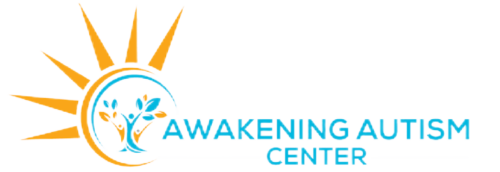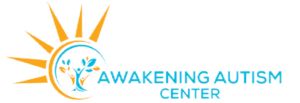What Is ABA?

Applied Behavior Analysis involves many techniques for understanding and changing behavior. ABA is a flexible treatment:
- Can be adapted to meet the needs of each unique person
- Provided in many different locations – at home, at school, and in the community
- Teaches skills that are useful in everyday life
- Can involve one-to-one teaching or group instruction
Antecedent, Behavior, Consequence
The following three steps – the “A-B-Cs” – help us teach and understand behavior:
- An antecedent: this is what occurs right before the target behavior. It can be verbal, such as a command or request. It can also be physical, such a toy or object, or a light, sound, or something else in the environment. An antecedent may come from the environment, from another person, or be internal (such as a thought or feeling).
- A resulting behavior: this is the person’s response or lack of response to the antecedent. It can be an action, a verbal response, or something else.
- A consequence: this is what comes directly after the behavior. It can include positive reinforcement of the desired behavior, or no reaction for incorrect/inappropriate responses.

Strategies For Autism In The Classroom
Positive Behavior Support Plans and Strategies
Positive Behavior Support Plans are often utilized to assist children with autism increase the desired behavior outside of ABA therapy, such as in the classroom or in the community. Positive Behavior Support Plans help individuals with autism practice life skills, create additional learning opportunities, decrease negative behaviors, increase positive communication skills, or increase skills needed for success in the classroom.
A positive behavior support plan does much more than just addressing negative or difficult behaviors; it is a plan formulated through a collaborative effort from caregivers, teachers, therapists, and doctors in a child’s life. It is often used for children autism. A behavior support plan should be individualized and tailored to the child’s specific circumstances to achieve social and learning goals or alter difficult behavior. This document is not a quick fix for a specific undesirable behavior; rather the plan should help children thrive across different settings such as school, home, and their community. Thriving should be based on the child’s specific preferences and those who execute the plan should understand the child’s unique environment.
Positive Behavior Support Plans can assist children with autism increase appropriate behavior while in the classroom. By monitoring behaviors and supplying reinforcement, a positive behavior plan will support ABA therapy. Please see below a few questions that may be addressed with a support plan.
- Is there enough space for all students to participate in the activity?
- Are work areas located in the least distracting locations of the classroom?
- Is there anything in the classroom that might be distracting to students with ASD?
- Are activity and work materials clearly marked and easily accessible to all students in the classroom?
- Do students with ASD know where to put their work when they are finished with a task or activity?
- Does the classroom have a daily schedule posted where all students can see it?
- Do students with ASD have individual schedules that tell them what they are supposed to be doing throughout the day (e.g., picture schedule posted, portable picture schedule, portable checklist)?
Awakening Aides
What, exactly, do 1:1 Awakening Aides do to support children with autism?
The answer may vary per student, but here are some of the ways in which an aide might help a child
with autism to be a part of a general education setting:
Autism Positive Behavior Strategies for Educators
In providing an autism treatment plan for schools, Awakening Autism Center can work with educators to examine
and offer support by working individually with each child. The negative behavior is identified
and the following steps may be put in place:
Provider Testimonial

“Elemy helps me extend my practice to more children who need care by helping families get access to an in-network provider.”
— Clinical Psychologist from Tampa, FL
M-CHAT Screening Tool
Developmental screening tool for toddlers between 16 and 30 months of age. It is designed to identify children who may benefit from a more thorough autism evaluation.


